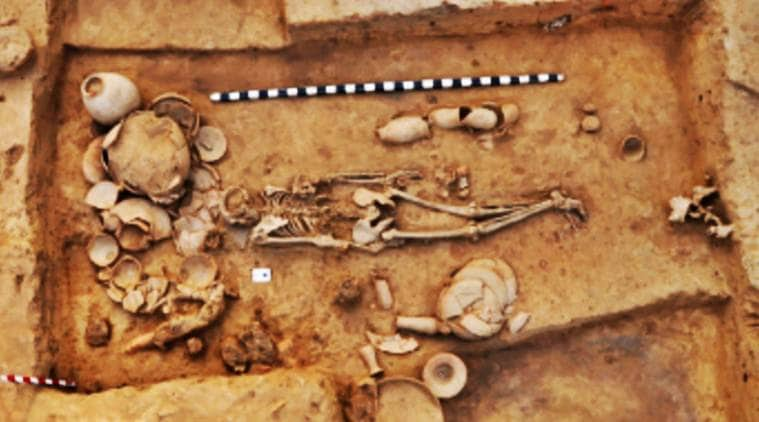
A team of researchers led by Vasant Shinde, a former vice-chancellor of Deccan College in Pune, has claimed that its new study using DNA analysis presents fresh evidence to question the existing knowledge about the Harappan civilisation.
Shinde, who led a study that was recently published in Cell journal, said his team’s findings not only go against the Aryan Invasion Theory but also confirms that agriculture and rearing of animals were practiced by the indigenous people of South Asia.
“We have archaeo-genetic evidence suggesting that there has not been any genetic changes in South Asians for the last 12,000 years. If the Aryans had invaded, their genetic traces would have been detected, which has not happened. This simply means that South Asians, ranging from Afghanistan to West Bengal and Jammu and Kashmir to Andamans, share common ancestry,” Shinde said while speaking at a session organised by Pune Union of Working Journalists (PUWJ) on Saturday.
He said that while the study showed that Harappans interacted with numerous people, mainly for trading purposes, it was the Harappans who could have spread agriculture practice, knowledge of traditional medicine and exchanged shells and similar valuable items with people hailing from Central or East Asia (including Aryans).
“There were movements of people to Central and East Asia, even via sea routes, but there was never migration into South Asia and the Harappans are indigenous people,” added Shinde.
While the researchers are yet to get scientific evidence on the languages that were commonly spoken by the Harappans, Shinde and his team found strong possibility of influence of Sanskrit on the languages.
He said that Harappans were highly advanced people with sound knowledge of Sanskrit. “We cannot rule out the influence of Sanskrit on other Indo-European languages, but we still do not have any evidence in the form of scripts analysed yet.”
Shinde, along with two dozen researchers from across the globe, recently published a paper titled ‘An Ancient Harappan Genome lacks DNA from Steppe Pastoralists or Iranian farmer’ in Cell journal.